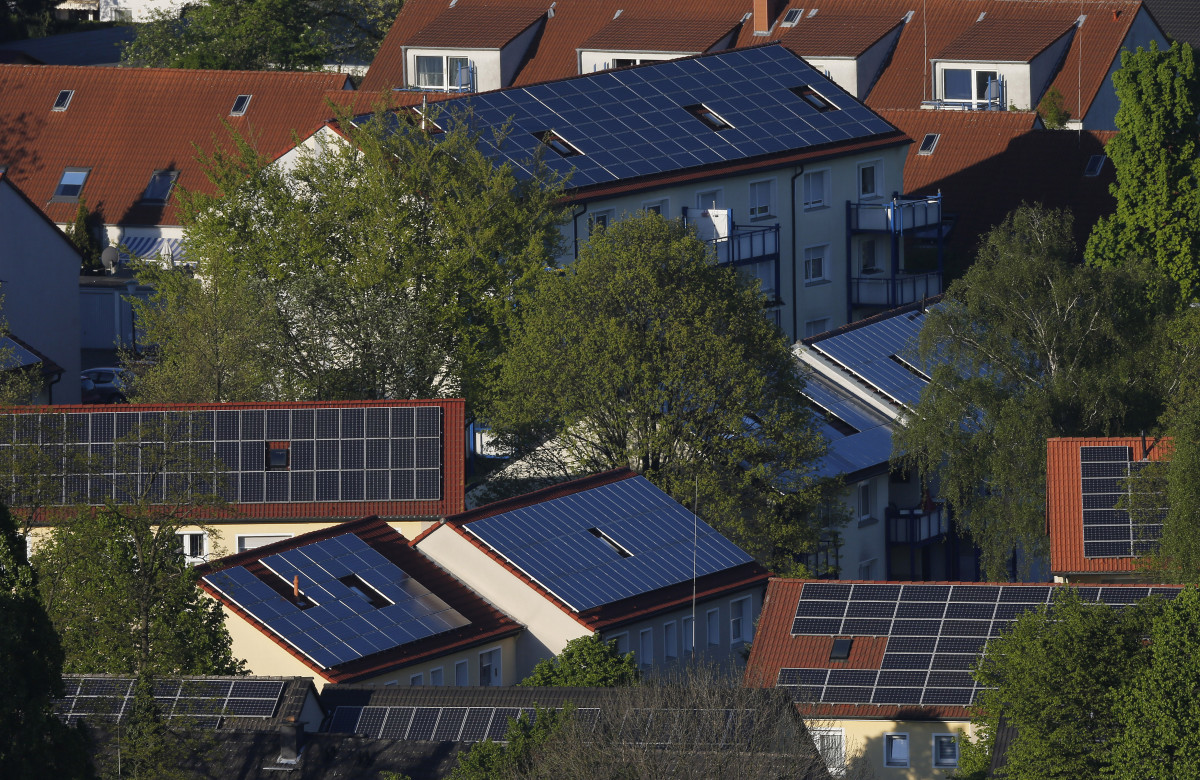Climate policies centred on social justice counter far-right populist strategies – researcher
***Please note: This article is part of a dossier on the impact of rising populism on climate efforts in Europe.***
Clean Energy Wire: For years we have reported that polls show a strong support among Germans for climate action and the energy transition. Is the population still on board for the transition?
Linus Westheuser: Our research shows that there is a very broadly shared awareness of the climate crisis in Germany, and a general consensus that something must be done about it. Equally, there is strong agreement that climate action must proceed in a socially-just manner so that ordinary people do not get overburdened and the rich contribute their fair share.
However, when digging deeper, we see that different ways of reasoning about the issue have emerged. One centres on those affected by climate change – flood victims for example. It operates with an apocalyptic vision of a future crisis resulting from present over-indulgence.
Another way of reasoning focuses mainly on the people affected by the ecological transition, such as motorists hit by rising fuel prices. People see a lot of insecurity in the here and now, and fear that the ecological transition will only make things worse.
These two ways of reasoning often talk past each other. But to successfully navigate the conflicts emerging around climate change, we must reconcile the concerns. Climate politics is about both – the end of the world and the end of the month.
Would you say that climate is a polarised issue in this country?
Not on the level of fundamental attitudes. On climate – just like in many other topics such as anti-discrimination or even migration – German public opinion is dominated by a strong centre with middle-of-the-road positions. “Yes, but…” is the typical form of argument in this large segment of the population.
In addition, one tends to underestimate how many people do not have any meaningful opinions at all because politics, to them, is just a distant and alien sphere. This undecided, or disaffected centre often escapes public discussions because the views of more radical groups carry higher news value. But it is actually more typical for the German population.
Climate has become much more politicised in the past couple of years.
Things are not so bad then?
Even without a full-blown polarisation of public opinion, one can say that climate has become much more politicised in the past couple of years. Just like with the effects of climate change, the distributional consequences of the transformation are only now starting to dawn on people. As a result, we see more intense political communication and conflicts. It also seems like climate attitudes are becoming increasingly tied into larger lines of conflict. For instance, what people think about climate action is increasingly linked to their opinion of the perceived pros and cons of immigration - a connection that was largely absent before.
Do you see a general climate policy backlash in Europe and Germany at the moment?
No, not to the extent it is sometimes portrayed in current media reports. This was recently underscored by a very interesting study by Tarik Abou-Chadi and colleagues at the Hertie School. The authors show that majorities in many European countries still call for more ambitious climate policy, but that this support varies when people are asked about different policies.
Voters of far-right parties are the only ones where a majority rejects any form of more ambitious climate action. For most of the population, it very much depends on the policies.
Infrastructural investment and incentives for the industrial transition, for instance, are very popular, as are bans on private jets. By contrast, higher CO2 prices or diesel bans are very unpopular. In our own study we observe that people often react very sensitively to social injustices and moments of unfairness created by climate measures. Many also reject state interventions that are perceived as intruding too far into people’s private autonomy, such as by telling them what type of car to drive, or to use gender-neutral language. We call moments like these “trigger points”.
The current success of right-wing anti-climate rhetoric has to do with the fact that a significant part of the population does not see itself as an active part of the change.
What does this mean for policymakers?
I think a model that could appeal to a majority of Germans is a mixture of massive job-creating public investments, financial support for the changes in energy and transport systems among the poorer half of households, and a compensation scheme for higher CO2 prices that distributes the money in a socially just manner.
Besides the Greens, the Social Democratic SPD could be a much more central actor in this than it has been so far. This would require developing a stand-alone social democratic climate policy addressing climate as an issue of justice and fairness.
Interestingly, the Hertie study shows that the voters of centre-right parties are also in favour of climate action through public investment, and not just price-based solutions – somewhat in contrast to the policies favoured by the parties they support.
To win over sceptics, it might also be helpful to frame climate protection as a question of competitiveness, jobs and securing the country’s future wealth. The good news is that there is the potential for broad support for climate protection.
Who benefits from the backlash narrative?
It strengthens parties like the far-right Alternative for Germany (AfD) because it allows it to present itself as the only representative of popular doubts and fears about the fallout of climate policies. The AfD mainly talks about climate policy using populist framings: it is portrayed as an ideological elite project pushed through against the will of the population.
As researchers at TU Dortmund suggest, an intensified politicisation of climate politics within the democratic spectrum may help undermine this appeal, because it means that the AfD can no longer present itself as the only party opposing a closed bloc. If the far-right selling point is reduced to calling climate change a hoax, we know that this would not fly with 95 percent of voters.
The current success of right-wing anti-climate rhetoric, by contrast, has to do with the fact that a significant part of the population does not see itself as an active part of the change. It feels left out in the cold by the developments. Our research shows that a certain "transformation fatigue" - especially among the working and lower middle classes - is widespread. The continuous demand for change appears threatening and exhausting because it is "those above" who decide the direction of change while the individual is left to bear the costs.
To counter this, it is important that people are enabled to participate in the transition. This does not only mean roundtables or non-binding citizens’ councils, but also, for example, giving local communities ownership stakes or revenue shares from wind or solar parks.
Several eastern German states head to the polls for elections in autumn this year. Are there significant differences in the climate views of people compared to citizens in western states?
The general awareness of the problem and people's worries are similar, but there are also some differences. The intense consequences of German reunification mean that voters in the eastern states often feel even more exhausted at the thought of further change. That probably means that the focus in campaigns in favour of climate policy should be on securing prosperity. It is very important to show that climate politics is not just a "politics of less", of abstinence, austerity, and deindustrialisation but of an increase in security, wealth, and public well-being.
A third of the German population has no significant savings. In the east that share is even higher. This means that people fear sliding into a precarious situation when, at the moment, they are still doing OK. If, in this scenario, ecological measures are seen as something that will make one’s situation worse, that spells doom for the climate agenda. The far right's playbook in the coming election campaigns is based on fears of loss of prosperity, and the state making what are portrayed as unreasonable demands of citizens in their everyday lives. People's worries about their economic livelihoods are a typical gateway for right-wing rhetoric, not just in the east.
Before those state elections, voters head to the polls in June to elect a new European Parliament. Should we have a significantly higher share of far-right politicians in the parliament then, will that effect climate policy, or will we simply see a change of labels, for example from 'Green Deal' to 'Industrial Deal' or 'Energy Security Package'?
There are studies which reveal that a stronger showing of the far right leads to weaker climate protection, so this is a real threat. But this threat already concerns the way climate is discussed politically. Far right actors will seek to turn climate politics into a culture war between ideological city elites and the average voter worried about petrol prices.
This way of turning people’s worries into resentment can lead to a climate policy deadlock, especially if environmentalists take the bait and focus their attention on changing people’s daily routines.
The alternative is addressing climate change as a question of social justice. In our study, we show that a majority of Germans agree that "those who have more should contribute more to fighting climate change." Here is the basis of a popular climate policy that does not fall into the trap laid out by the far right.



